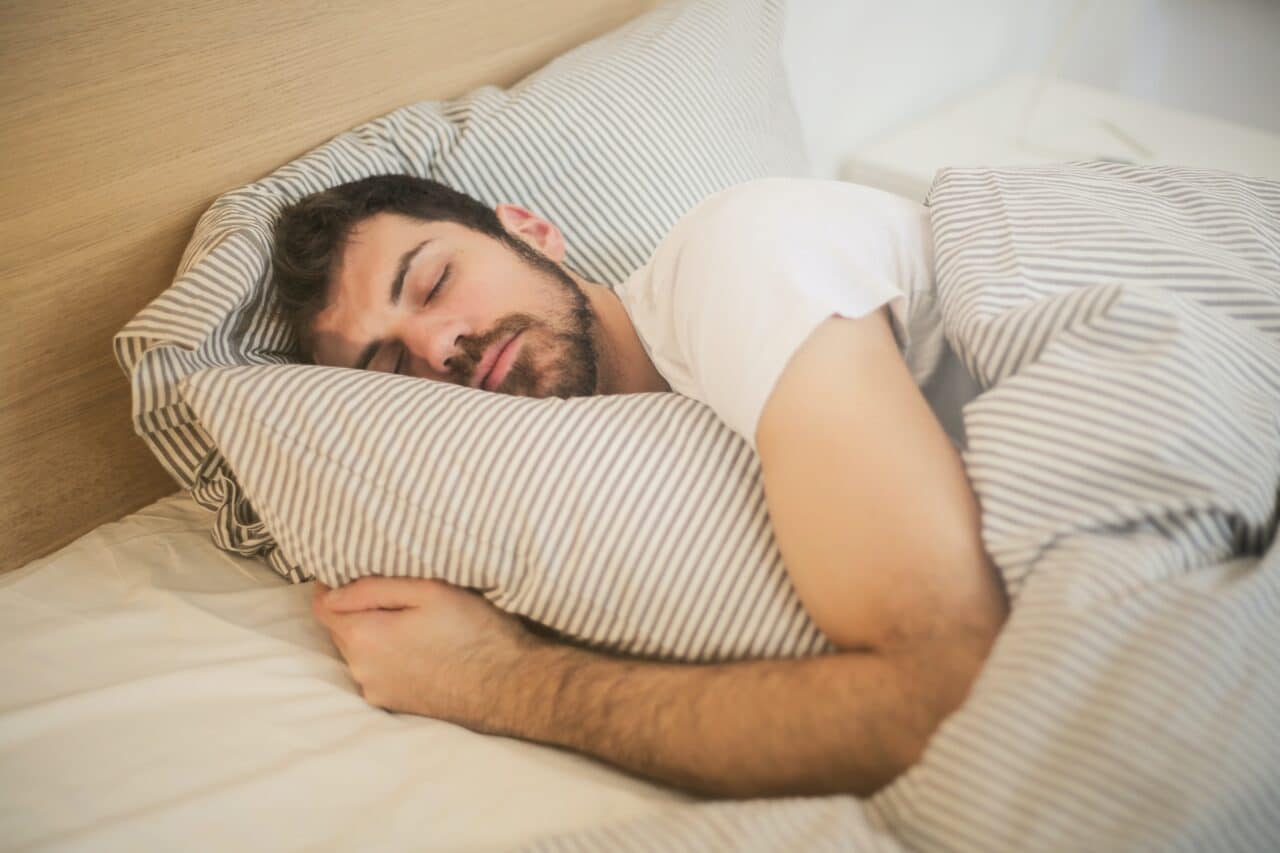Getting quality sleep every night is essential to your overall health. Many factors can contribute to sleep problems, including allergies. Thankfully, there are ways to prevent allergy symptoms from getting in the way of much-needed rest.
How Allergies Make It Harder To Sleep

Allergy symptoms like nasal congestion, sneezing, and itchy eyes and throat can make it hard to both fall and stay asleep. Allergies also may contribute to breathing obstructions or snoring that can wake you up repeatedly throughout the night as well.
A study published in 2020 looked at the relationship between allergic rhinitis and sleep quality and found that patients with allergies were more likely to experience:
- Insomnia
- Restless sleep
- Obstructive sleep apnea
- Snoring
- Difficulty waking up
- Daytime sleepiness
- More frequent use of sleep medications
- Lower sleep efficiency
Manage Allergy Symptoms for Better Sleep
By getting your allergy symptoms under control, you can improve your quality of sleep and leave yourself feeling more rested each day. You can do this by:
- Visiting an allergist. An allergist can figure out your specific triggers with allergy testing. Knowing what causes your symptoms makes it easier to know what to avoid. They can also prescribe medications and recommend other suggestions to get your allergies under control.
- Keeping your windows closed. If your windows are open, especially in the bedroom, it makes it more likely for pollen to get into the house and onto your bedding and furniture.
- Keep pets out of the bedroom. Along the same lines, since pet dander can trigger allergies, you should keep any pets you might have out of the bedroom to reduce nighttime symptoms that can interfere with sleep.
- Shower before bed and wash sheets regularly. This removes pollen and other potential allergens from your body before you sleep and keeps them from building up on your bedding as well. Also, be sure to change your clothes and shower if you’ve just come home from somewhere where you were exposed to pollen, like after a hike through Cascade Springs Nature Preserve Trail.
- Get an air purifier. They can help rid your bedroom air of common household allergens like mold, dust mites, pet dander, and pollen, making breathing easier at night.
- Take antihistamines at night. Antihistamines, either over-the-counter or prescription-strength, are one of the best medications to reduce allergy symptoms. They also commonly make people drowsy. By taking your medication at night, it may help you fall asleep as well as ensure the dose is still strong in your system when you go to bed. Talk to your doctor before making any changes to your medication routine.
For more information or to schedule an appointment with one of our allergy experts, call ENT of Georgia North today.